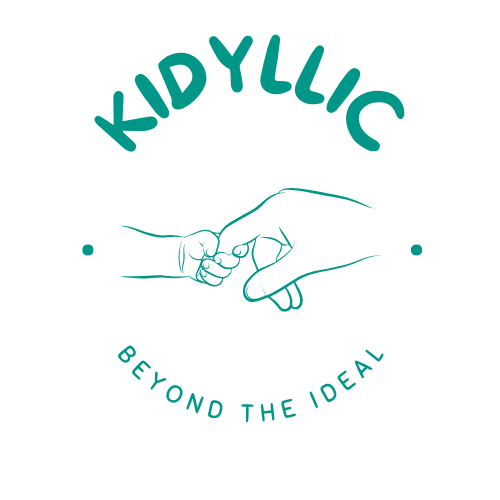
Table of Contents
Becoming a parent is one of the most transformative experiences in life. It reshapes priorities, shifts perspectives, and introduces challenges that no one can fully anticipate. From pregnancy to postpartum, the journey is filled with joys, uncertainties, and countless decisions. Many parents, including myself, often feel overwhelmed, questioning if they’re making the best choices for their children.
The weight of responsibility can feel immense, and seeking reliable support becomes a crucial aspect of preparing for parenthood. That’s where a dula can make all the difference. But what exactly is this professional, and why is it essential for modern families? In this guide, we’ll explore the role of a dula, the benefits of having one, and how to find the right support for your parenting journey.
What Is a Dula and Why Is It Essential?
Understanding the Role of a Dula
She is a trained professional who delivers emotional, physical, and informational help to parents before, during, and after childbirth. Her role is centered around offering continuous care, reassurance, and knowledge to expectant and new parents, helping them navigate the complexities of pregnancy, labor, and postpartum.
Unlike a midwife or medical professional, a dula does not provide clinical care but instead focuses entirely on non-medical support, ensuring that parents feel empowered, confident, and well-prepared for their journey into parenthood. This type of service can be extremely helpful for first-time parents who may be uncertain of what to predict and how to manage the new responsibilities. Many parents find that she becomes a trusted companion, offering personalized guidance based on their unique needs and concerns.
I remember my second pregnancy with Joud—having already gone through the experience with Yas, I thought I knew what to expect. But I quickly realized that no two pregnancies are the same. The emotional toll, the physical exhaustion, and the struggle to balance it all were overwhelming. A dula could have been a reassuring presence, offering guidance and support when I needed it most.
How a Dula Differs from a Midwife or Doula
Many parents confuse the term dula with doula, and while they are similar, there are key differences. A doula typically provides birth and postpartum support, while a dula extends their role to offer ongoing parenting guidance beyond the early postpartum phase. This means they can be an invaluable resource long after the baby arrives, helping parents navigate evolving challenges. It is more focused on the long-term journey of parenting, providing support for developmental milestones, behavioral challenges, and emotional well-being for both parents and children.
They can help with everything from sleep training to managing toddler tantrums, guiding parents through the often-overwhelming first years of a child’s life. Some of them also specialize in parental self-care, ensuring that new parents maintain a healthy balance between their own needs and their child’s well-being, making them a truly valuable resource for modern families.
The History and Evolution of Dulas
Historically, women have always supported each other through childbirth and early parenthood, forming tight-knit communities where knowledge and care were passed down through generations. In many cultures, traditional birth attendants played roles similar to modern-day dulas, offering hands-on support and wisdom. These individuals were often respected figures in their communities, passing down knowledge through generations. In recent years, the role of a dula has attained credit as an important element of holistic parenting, with many studies highlighting their positive impact on both parents and newborns.
Research has shown that parents who receive continuous support during and after childbirth report lower levels of stress, increased confidence in their parenting skills, and even better bonding with their infants. Additionally, they often introduce mindful parenting techniques, helping families transition smoothly into their new roles and responsibilities.
The Benefits of Having a Dula
Emotional and Physical Support for Parents
She provides continuous emotional reassurance, helping parents feel confident in their decisions. She offers a listening ear during moments of doubt, helping to process fears and uncertainties that come with parenthood. This can be particularly helpful in preventing feelings of isolation, which many new parents experience. They also provide practical assistance, from creating a birth plan to guiding parents through postpartum recovery.
Beyond that, they often act as mediators, helping parents communicate their needs effectively with medical professionals and family members. They can also introduce relaxation techniques, such as breathing exercises or gentle stretches, to alleviate physical discomfort and stress throughout pregnancy and beyond. Learning these techniques early can contribute to a more positive birthing experience and a smoother recovery.
Reducing Stress and Anxiety During Pregnancy and Postpartum
According to a study published in the Journal of Perinatal Education, women who obtained constant help from a dula experienced 25% shorter labor and were 31% less likely to use pain medication. Additionally, research from the American Journal of Maternal Health suggests that parents who work with a them report a 40% increase in overall satisfaction with their birth experience.
Beyond childbirth, she helps reduce postpartum anxiety by breeding a stronger emotional link between parents and their newborns, offering techniques such as guided relaxation, mindfulness exercises, and personalized coping strategies. These strategies can also enhance the overall well-being of parents, helping them feel more prepared and supported in their journey. This ongoing support can be especially crucial for first-time parents navigating the challenges of newborn care and adjusting to a new family dynamic.
Enhancing the Birth and Parenting Experience
Having their supports, means you’re not alone in your journey. The reassurance of having someone experienced by your side can make an immeasurable difference during both expected and unexpected moments. Whether it’s providing comfort measures during labor, offering reassurance in the sleepless nights of early parenthood, or guiding parents through challenging transitions, a dula’s presence can make all the difference.
They bring a wealth of knowledge on newborn care, assist with practical tasks like feeding and sleep routines, and help parents develop confidence in their instincts. By offering guidance tailored to each family’s specific needs, they enable parents to make informed decisions with greater ease. Many parents also find that a dula’s emotional support strengthens their bond as a couple, helping them navigate the stresses of early parenthood together.
How to Find the Right Dula for Your Family
Key Qualities to Look for in a Dula
When choosing a dula, consider:
- Experience and certifications: A well-qualified one, should have formal training and certifications from recognized organizations such as DONA International or CAPPA. Look for them who have experience with different birth settings, including home births, birthing centers, and hospitals. Additionally, those who continue their education by attending workshops and remaining updated on the latest studies in perinatal care can provide more comprehensive support. Some of them also have specialized training in areas such as lactation consulting, postpartum mental health, or infant sleep coaching, which can be beneficial depending on your needs.
- Communication style and personality: A good one should have a warm, patient, and empathetic approach, making parents feel at ease during an emotionally intense period. They should be excellent listeners, capable of comprehending and respecting the special demands and preferences of each family. With strong interpersonal skills, she can adapt their communication style to different situations—whether offering gentle reassurance, providing clear guidance, or advocating for parents’ wishes in medical settings. Additionally, compatibility is key; parents should feel comfortable discussing their concerns openly, trusting their dula to support them with kindness and professionalism.
- Availability for postpartum support: It is important to find a good one who can provide ongoing support in the weeks and months following childbirth. Many of them offer flexible schedules, including in-home visits, virtual consultations, and even overnight assistance for new parents struggling with sleep deprivation. Some specialize in postpartum recovery, guiding parents through healing techniques, lactation support, and baby care routines. Ensuring that she has availability that aligns with your needs—whether for occasional check-ins or continuous support—can make a significant difference in adjusting to life with a newborn. Parents often appreciate knowing they have a trusted person to turn to, whether for emotional reassurance or practical advice.
Questions to Ask Before Hiring a Dula
- What is your experience with newborn care? Have you worked with parents facing specific challenges, such as premature births or colic? Can you provide insights into newborn sleep patterns, feeding techniques, and developmental milestones? How do you approach supporting parents in their recovery while ensuring the baby’s well-being?
- How do you support both parents in their journey? Do you offer specific strategies to help couples share responsibilities and communicate effectively during this transition? How do you ensure that both parents feel equally supported and empowered in their roles? Can you provide tools or techniques that help foster teamwork and emotional connection between partners while navigating early parenthood?
- Can you provide references from past clients? Hearing firsthand experiences from other families can be incredibly valuable when making a decision. Have you worked with families who had similar birth plans or parenting approaches? Can you share testimonials or success stories that highlight how your support made a difference?
Where to Search for Certified Dulas
You can find certified dulas through organizations like DONA International or local parenting networks. Many hospitals and birthing centers also maintain directories of trusted dulas. Additionally, online platforms such as Evidence Based Birth and Childbirth Connection provide reliable resources, including user reviews and testimonials, to help parents make informed choices.
Attending local parenting classes or support groups can also be a great way to connect with experienced ones and get firsthand recommendations from other parents. These connections often lead to long-term relationships with individuals who comprehend the special challenges of parenthood.
Frequently Asked Questions (FAQ)
What makes a dula different from a doula?
While the terms are often used interchangeably, a dula typically provides extended support beyond childbirth, focusing on ongoing parenting challenges.
Can a dula help with postpartum recovery?
Yes! A dula offers emotional support, guidance on newborn care, and reassurance for new parents adjusting to life with a baby.
Is hiring a dula worth the investment?
Many parents find that the confidence and reduced stress a dula provides are invaluable. Feeling supported can also contribute to stronger mental health and a more positive postpartum experience. Studies indicate that continuous support leads to better birth outcomes and improved emotional well-being.
How does a dula support fathers and partners?
A dula ensures that partners feel included and empowered, providing practical advice on how to support the birthing parent and care for the newborn.
Conclusion
Parenting is a journey loaded with highs and lows, but no one should have to navigate it alone. A dula can be a crucial ally, offering the guidance, support, and reassurance that parents need. If you’re considering hiring a dula, take the time to research, ask questions, and find the right fit for your family. Want to learn more? Stay instructed and certified as you navigate the incredible journey of parenthood. Check out our other parenting resources for expert tips and insights!
